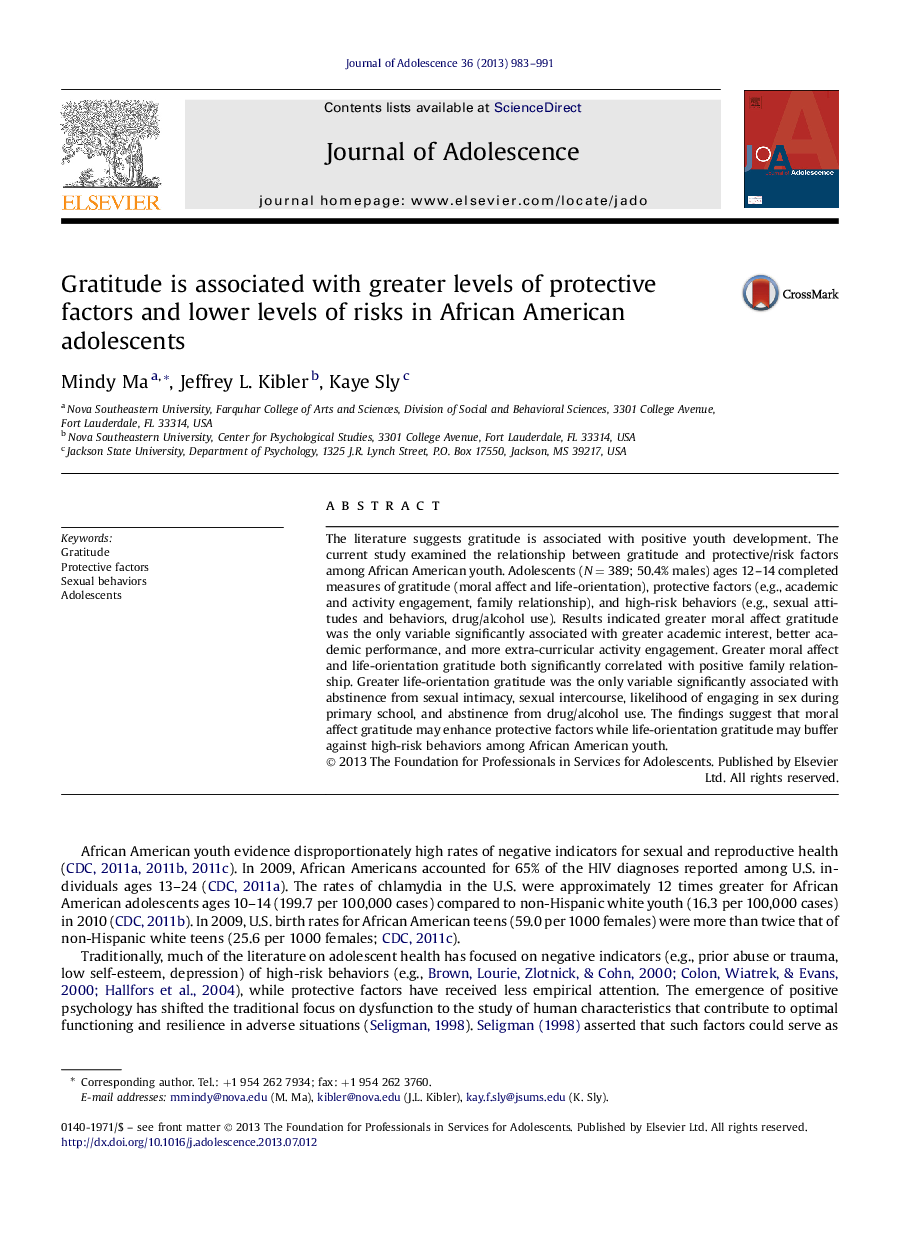| Article ID | Journal | Published Year | Pages | File Type |
|---|---|---|---|---|
| 880930 | Journal of Adolescence | 2013 | 9 Pages |
The literature suggests gratitude is associated with positive youth development. The current study examined the relationship between gratitude and protective/risk factors among African American youth. Adolescents (N = 389; 50.4% males) ages 12–14 completed measures of gratitude (moral affect and life-orientation), protective factors (e.g., academic and activity engagement, family relationship), and high-risk behaviors (e.g., sexual attitudes and behaviors, drug/alcohol use). Results indicated greater moral affect gratitude was the only variable significantly associated with greater academic interest, better academic performance, and more extra-curricular activity engagement. Greater moral affect and life-orientation gratitude both significantly correlated with positive family relationship. Greater life-orientation gratitude was the only variable significantly associated with abstinence from sexual intimacy, sexual intercourse, likelihood of engaging in sex during primary school, and abstinence from drug/alcohol use. The findings suggest that moral affect gratitude may enhance protective factors while life-orientation gratitude may buffer against high-risk behaviors among African American youth.
